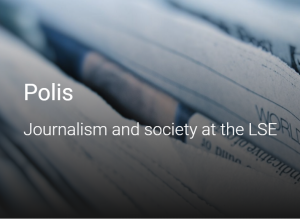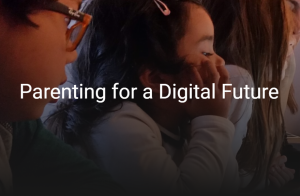
LSE Media Policy Project’s Sally Broughton Micova interviews Thais Portilho-Shrimpton, a former journalist who is now the Campaign Manager for the Hacked Off Campaign. She has been attending every day of the Leveson Inquiry hearings and tweeting to the well over 1,600 followers of the campaign. She argues that the process has not been captured by celebrities, but that it does need more journalists, especially ones outside the big national newspaper groups, to give evidence.
Sally: Could you start by telling us a bit about Hacked OFF and why you are in the Leveson Inquiry hearings every day.
Thais: Hacked Off started as a campaign to push for a public inquiry into phone hacking and other illegal practices and egregious practices as well. We launched on the 6th of July and, because it was the week of the revelations of the Millie Dowler phone hacking, the Prime Minister announced on the 13th of July that there was going to be a public inquiry. From that moment on we thought we should push for very broad terms of reference. We also pushed for the inquiry to be held under the Inquiries Act, so a judge would have the power to subpoena witnesses, who would have to give evidence under oath. Because we were so involved in the terms of reference, and because it was the main goal of the campaign to have a public inquiry, we decided to monitor it very closely and report it as well, so that’s what I’ve been doing. It’s all very new and it’s interesting to see how the Lord Justice is still finding ways of hearing the evidence in a way that he can strike a balance and be fair to all parties involved, not just the victims. The newspapers are also involved, not just the victims, and the newspaper groups are completely entitled to defend themselves from allegations.
Sally: What do you focus on reporting to the public in your tweeting?
Thais: Well of course, if I could report the whole transcript I would, everything that I can hear, but I have to stick to the most impactful things just like any other way of reporting. Every time there is a new revelation or someone says a line, like for instance when Sally Dowler told the story of when she thought Millie was still alive that was very sad and very touching. Then you could see everyone in the room typing. I’m in the annex room where all the journalists are, and when you hear something that you know has news value – is worth a tweet – then you can hear everyone going and tweeting the same thing. It’s very interesting because it really is an editorial exercise. You have to choose what you are going to tweet and you go with what you think is the most newsworthy line and people tend to go for the same lines because a lot of people who have been working in the industry, who are journalists, have the same sense of what is news. For example, when Hugh Grant said that the mother of his baby received a threatening phone call telling him to “shut the F up” everyone tweeted that. That’s a very newsworthy line because he hadn’t spoken about it before in public so everyone was frantically tweeting. You know people who are following would be interested in that. I think that if you are tweeting interesting things, not just the whole thing step by step because that’s very tiring, but if you pick the interesting bits then you capture an audience.
Sally: And what kind of response do you get to your tweeting?
Thais: I get lots of people agreeing or disagreeing with what’s been reported. I feel very tempted sometimes to say “don’t shoot the messenger”, because people get very agitated about certain things that are said, but I haven’t had to say that yet. I have all sorts of different responses, and because I am working with a campaign, I am reporting from the Inquiry, but I do add my commentary to the tweets about the proceeding, because we are pushing for something here. We want this Inquiry to work and we want to see all practices by whatever newspaper group exposed and dealt with. There is no bias whatsoever. This is something that people should understand. It’s not just the tabloids. Newspapers means all newspapers – if someone has evidence that they’ve done something wrong then they have to face the music. It just so happens that unfortunately tabloids are the most mentioned ones, or red tops and tabloids.
Sally: You said that you are actually in an annex with journalists, considering that, as you said, you are a campaign journalist and have a particular position, what is it like being in the room with all the journalists?
Thais: It’s all very friendly. There is always a lot of reaction to things that are said. That’s one of the good bits of being in the annex room is that you can actually react. You don’t have to be quiet. So sometimes its laughter, sometimes it’s just gasps, it’s really interesting.
You could say that we have an agenda and that’s why we are following the Inquiry so closely. Obviously if you have a campaign you have an objective, but are trying to do journalism. But who said journalists working for the big newspaper groups don’t have an agenda also. Who says the Times is not there because they have an agenda, and the FT is not there because they have an agenda, the Guardian is not there because they have an agenda. In a way I think they are all there for a particular reason, but trying to do journalism. I don’t feel any different from the other journalists, other than the fact that because I deal with the victims very closely, I have heard their stories many times before they actually sat there to give their evidence.
Sally: What has been the most “wow” moment for you so far?
Thais: Interestingly the bit where Hugh Grant made his allegations against the Daily Mail, which I’m not sure I can repeat. That was quite interesting. But I think the McCann’s evidence was very compelling. And Mary Ellen Field’s evidence, even though I had heard it and sat down with her before, I’m always astonished to hear how she tells her story of what happened to her. I think all the evidence heard so far has been very compelling – be it a celebrity or an ordinary person. You know there are claims that the Inquiry is being hijacked by celebrities. I find that that’s not true. In his opening speech, Robert Jay who is the Inquiry counsel said he’d already received more than 2000 documents, as in 2000 different bits of evidence from different people. I don’t have the figures, but I would be tempted to say that only a fraction of that written evidence submitted to them came from celebrities. I hope I’m not wrong, but I don’t think that I am because there are groups out there that have been submitting evidence – there are academics, there are groups like Hacked Off, like Index on Censorship, journalists, and all sorts of people have been submitting evidence. Hugh Grant’s story of press abuses is astonishing, and Steve Coogan’s as well – but you also have people like Chris Jeffries who was the landlord wrongly arrested on suspicion of a murder. This evidence is astonishing and he’s just an ordinary guy, a teacher who just found himself in the middle of a complete storm. There are celebrity examples, but like I said they are not the only examples and I am sure that there is a lot of written evidence that will cover similar practices by different people, by different newspapers in relation to different people who are not necessarily celebrities.
I think Lord Justice Leveson has a lot to consider and he has asked, from the first hearings until now, I think, for anyone to submit evidence to the inquiry. It’s there on the website as well. I think especially more journalists should submit their evidence, journalists who work for the local press, for instance. They have to give their take on how they work and how the existing laws and self regulation affect them. Leveson needs evidence about this as well and how any changes focused on the behaviour of the national press might impact the everyday life of local journalists, for instance. I would like local journalists to submit their evidence to explain how they do their jobs and how they’re affected. I’m sure some of them have done already and I’m hoping for more.
Sally: What is it that you think you want to see at the end of this process?
Thais: We are very much open minded and trying to contribute to the discussion about the new models of regulation and self-regulation of the press. We are of the opinion that self regulation alone hasn’t worked, it failed. If you look at all the evidence that is being given by people who were in the most awful circumstances, who actually needed the PCC for redress after stories were published about them, they failed. Unfortunately that’s the opinion of probably 9 out of 10 people that are sitting there – I don’t know that that’s really the right figure, but that’s the impression that I got from listening to all the evidence. I cannot remember anyone who said oh yes the PCC was fantastic throughout. There were instances when someone said, actually when this happened the PCC was very helpful and they dealt with the incident in this and that way, but in general with all the times that I’ve needed the PCC they’ve failed. We are absolutely not looking for a state controlled press. That is absolutely NOT what we want. But we do think that editors, reporters and everyone should be more accountable. In the end what we want is journalism done with responsibility and we would like very much to protect journalism that is done in the public interest. That’s very important and that is the reason why you want to have a free press. Not so that it can just destroy someone’s life.




